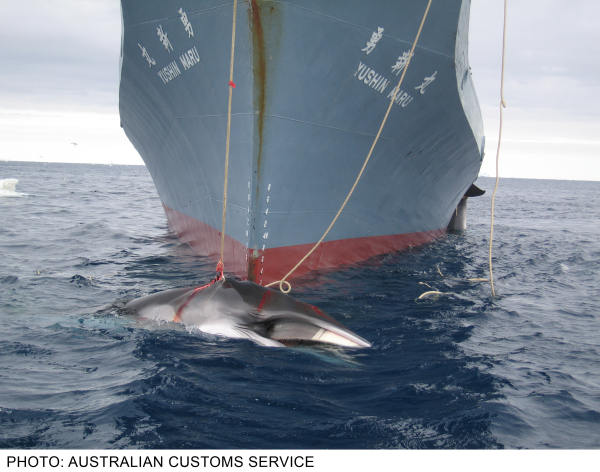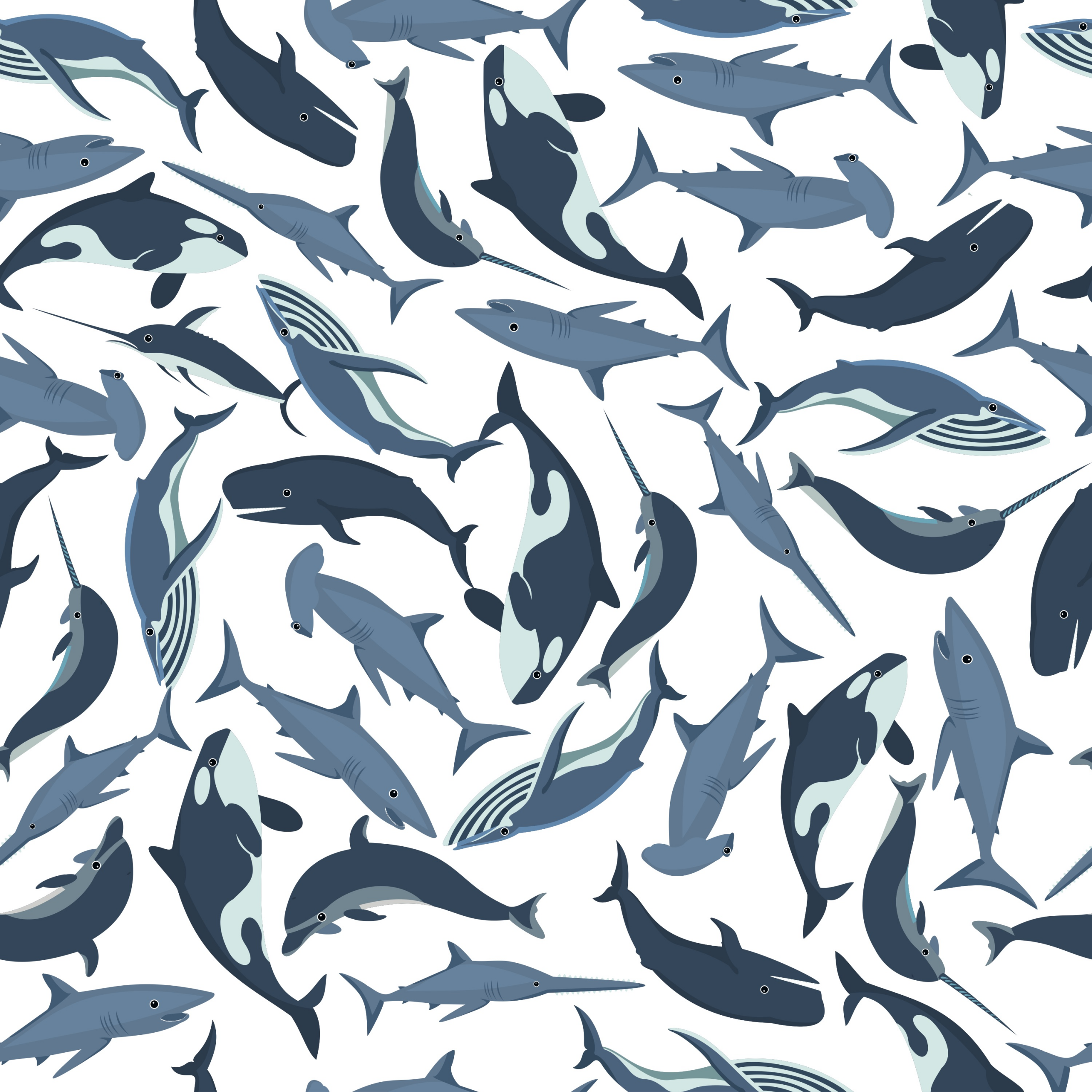ICB/CCC, May 25th, 2015 – Almost 500 hundred scientists from around the world specialized in non lethal investigation and conservation of fauna, join to express their absolute opposition of a new Japanese “scientific” whaling program in Antarctica to the Scientific Committee of the International Whaling Commission (IWC) and request its members to reject this plan. The Committee is currently meeting until June 3rd in San Diego, USA. The Japanese government expects the Committee to review its proposal to renew large-scale whaling operations in the upcoming summer season in the southern hemisphere.
ILLEGAL WHALING IN ANTARCTICA
On March 31st, 2014, the International Court of Justice (ICJ) at the Hague made a historical ruling and ordered Japan to close its “scientific” whaling program in Antarctica. The Court concluded that the program, named JARPA II, that Japan used to kill whales in order to “study” them, did not comply with the purpose of scientific research under the IWC and therefore, it is not science. Additionally, the Court concluded that these whaling operations violate the moratorium on commercial whaling and the integrity of the Southern Ocean Whale Sanctuary, where the killing of these marine mammals is forbidden independently of their conservation status.

After several public statements made by Japanese authorities affirming that they would comply with the Court’s ruling, in November 2014 the government submitted the “Proposed Research Plan for New Scientific Whale Research Program in the Antarctic Ocean” (NEWREP-A) to the IWC. This “new” plan is nothing more than the continuation of JARPA II seeking to continue killing whales at a commercial scale under alleged “scientific” purposes and avoid to comply with the Court’s final ruling.
WORLD SCIENTIFIC COMMUNITY UNITES TO DEFEND SCIENCE AND WHALES
Almost 500 hundred scientists from 30 countries, who represent the scientific community at a wider global scale than the Scientific Committee of the IWC, joined to express their opposition to the use of science for political purposes. They include world renowned researchers such as Jane Goodall, Roger Payne, Sidney Holt, Erich Hoyt, Frans de Waal, Bernd Wursig, Giusseppe Notarbarttolo Di Sciara, along with hundreds of scientists from Argentina, Australia, Belgium, Bolivia, Brazil, Canada, Chile, Colombia, Costa Rica, Dominican Republic, Ecuador, France, Germany, Greece, Guatemala, India, Ireland, Luxembourg, Mexico, Netherlands, Peru, Portugal, Spain, South Africa, Switzerland, Suriname, United Kingdom, United States, Uruguay and Venezuela.
The scientists support the ICJ ruling and fully agree with its statement that after thousands of whales killed “the scientific result of JARPA II is limited” and that the government of Japan has implemented the so-called “scientific” whaling programs in the Antarctic “for logistic and political reasons rather than scientific”.
Erich Hoyt, member of the Survival Commission of Cetacean Species and the World Commission of IUCN Protected Areas expressed that “the Japanese government’s proposal to continue whaling in the ‘name of science’ is ignorant, self-serving and deeply anachronistic. That whaling would re-open in the Southern Ocean Sanctuary is nothing short of scandalous. The International Court of Justice and the international scientific community have spoken out loudly and clearly, and the world will wonder why the Japanese government refuses to listen. It is no surprise that so many scientists from around the world — scientists who are often reluctant to get involved on the policy or conservation side — have put their voices together on this issue to show that the Japanese whaling industry’s intentions are a perversion and abuse of the concept of science”.
Dr. Claudio Campagna, member of the Marine Program of the Wildlife Conservation Society affirmed that “the controversy around “scientific whaling” does not end with the concealment of the commercial objectives that parasitize the principles of science. A significant part of the world is ignored every time that the intention to continue the killing of the whales is renewed. Given the interdependence of Humanity, political strategists should build cooperation and reciprocity, weighing the international common will against the internal interests”.
Since the implementation of the moratorium on commercial whaling in 1986 and until 2013, the government of Japan killed more than 13,000 whales under alleged “scientific” research purposes. In this respect, the scientists state in the letter that “there is no other study on great mammals that has required such a disproportionate sample size to learn about their biology and ecological needs” and highlight that “the international scientific community would not accept any research program based on the annual killing of hundreds of bears, felids or chimpanzees to ‘study’ them”.
Dr. Mariano Sironi, Professor of Biological Sciences at the National University of Cordoba and Scientific Director of the Instituto de Conservacion de Ballenas of Argentina – one of the NGOs that led this initiative – explained that “doctors do not kill their patients to study them. As a researcher working on the longest study based on the photo identification of whales, I can assure that, in the 21st century, it is not necessary to kill whales to study them. If the government of Japan reoriented its efforts on a research program based on non-lethal techniques, it would not only abide by its international obligations but also shine among the most advanced nations in its solid and useful scientific knowledge of whales and their ecosystem needs. Moreover, this decision surely would bring Japan more applause and honor than rejection from the international community”.
Finally, the letter of the world scientific community makes a strong call to the Scientific Committee of the IWC to reject the NEWREP-A proposal, since its validation would represent “a regrettable setback for science, an alarming precedent for other multilateral agreements that base their decisions on scientific criteria and a serious damage to the international judicial system”.
Barbara Galletti, president of the Centro de Conservacion Cetacea of Chile expressed that “we are very proud to lead this initiative with Instituto de Conservacion de Ballenas. This statement, signed by hundreds of scientists, is a convincing call to put an end to Japanese whaling programs in Antarctica, since they distort the concept of science. The behavior of the government of Japan sets a concerning precedent to use science for geopolitical purposes in a strategic area such as the Southern Ocean”.
The letter will be delivered to the IWC Secretariat for its distribution to all its member countries as well as all representatives of its Scientific Community.
View letter here
Source: Instituto de Conservacion de Ballenas, Centro de Conservacion Cetacea




